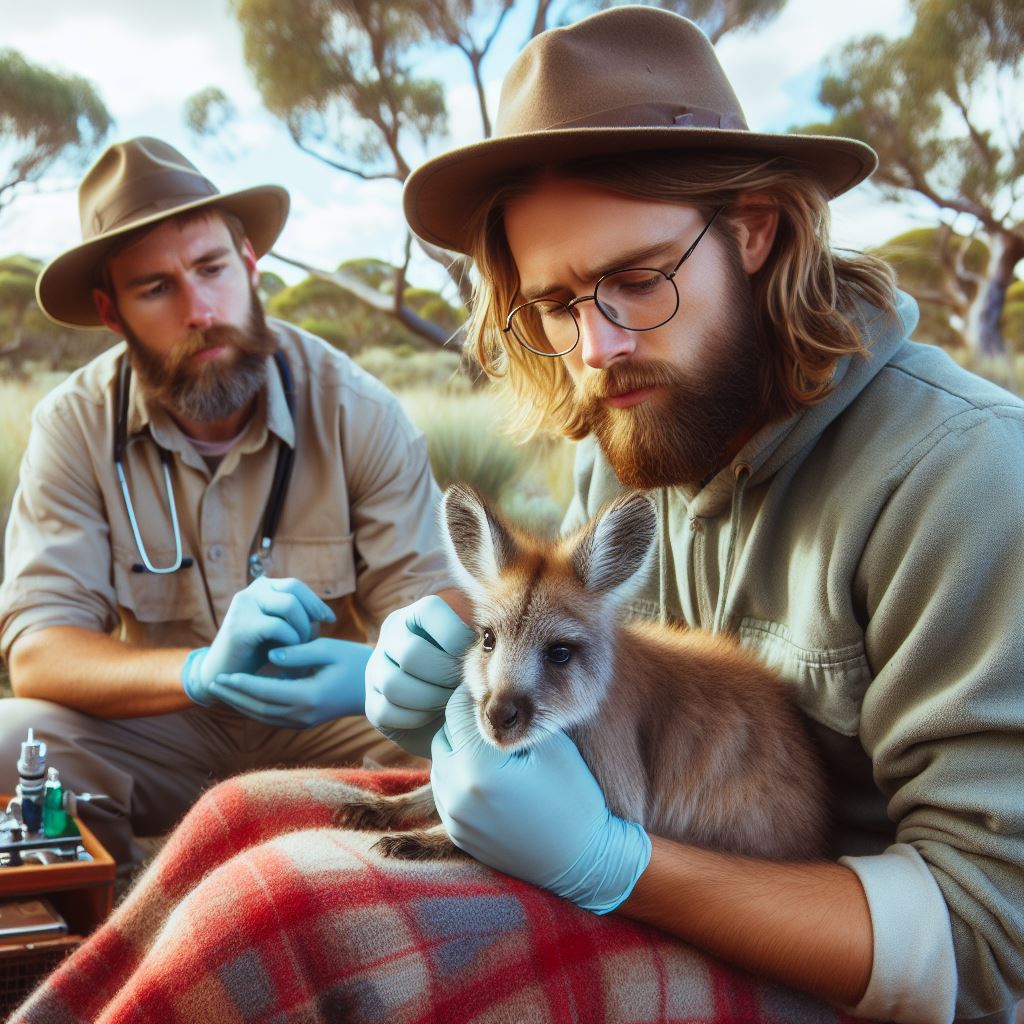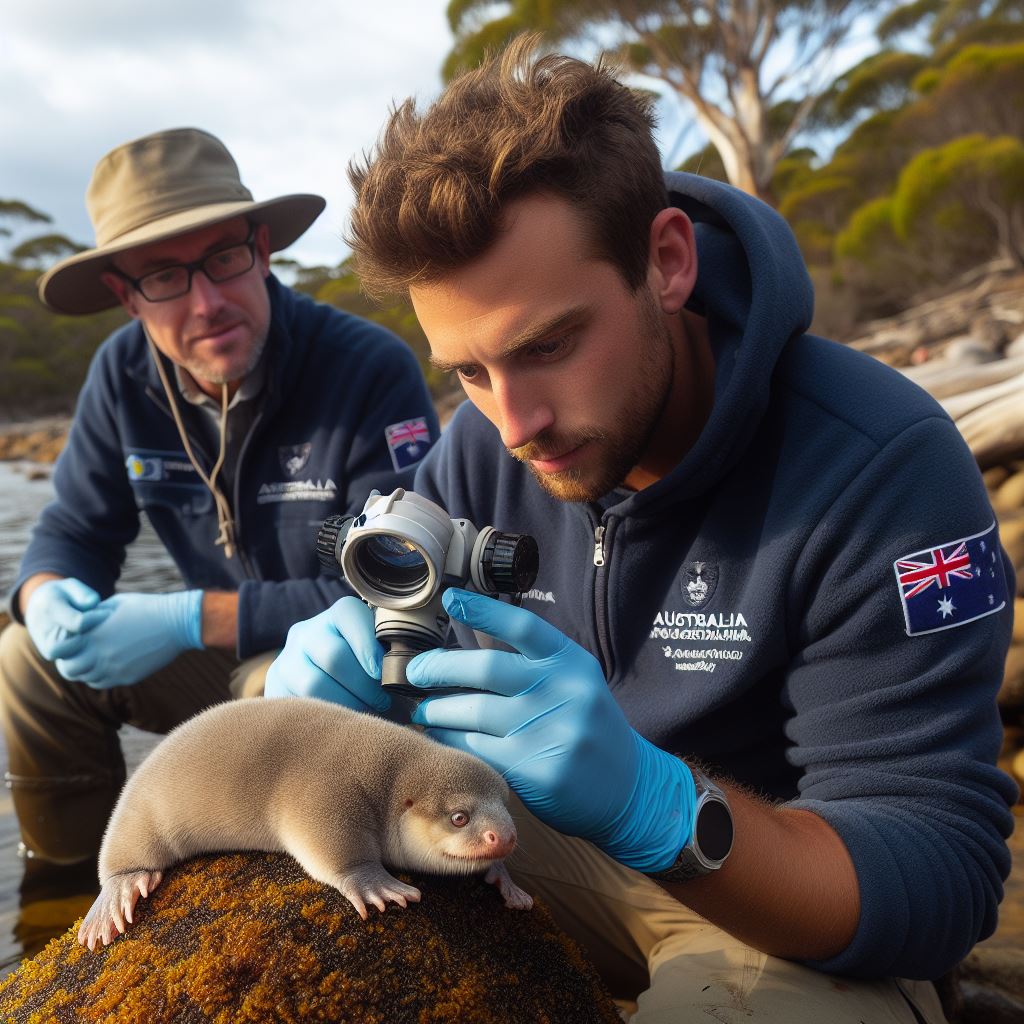Introduction
In the world of biology research, grants and funding play a crucial role.
They provide essential support for scientists to pursue groundbreaking studies and make significant discoveries.
Without financial assistance, many important research projects would never get off the ground.
Australia, known for its rich biodiversity and unique ecosystems, holds immense significance in the field of biology research.
The diverse flora and fauna found in this country provide scientists with countless opportunities to explore and understand the intricacies of life.
Grants and funding enable researchers to conduct experiments, collect data, and analyze findings.
They allow scientists to push the boundaries of knowledge and contribute to the advancement of biology.
By providing financial support, grants also help attract talented researchers and promote innovation within the field.
Additionally, funding helps establish state-of-the-art laboratories and research facilities, equipping scientists with the necessary resources to carry out their investigations effectively.
It also promotes collaboration among researchers, facilitating the exchange of ideas and fostering a vibrant scientific community.
As biology research continues to evolve and address pressing challenges such as climate change, biodiversity loss, and diseases, grants and funding become even more critical.
They enable scientists to tackle these complex issues head-on by providing resources and support for their endeavors.
In general, grants and funding form the foundation of biology research in Australia.
They not only support scientific exploration and discovery but also contribute to the overall growth and progress of the field.
With adequate financial backing, researchers can make significant contributions to our understanding of life and the environment.
In Australia, there are several grant funding bodies and organizations that support biology research. These bodies provide various types of grants to facilitate scientific research and advancement.
Overview of the grant funding landscape in Australia
Various grant funding bodies and organizations in AU
- Australian Research Council (ARC): The ARC is a major provider of competitive grants for research projects across different disciplines, including biology.
- National Health and Medical Research Council (NHMRC): NHMRC funds research related to health and medical sciences, including biology.
- Australian Institute of Marine Science (AIMS): AIMS offers grants for marine biology and ecological research.
- BioPlatforms Australia (BPA): BPA provides infrastructure and funding to support genomics and bioinformatics research.
- Australian Academy of Science (AAS): AAS offers grants and fellowships to support scientific research and collaborations.
- Commonwealth Scientific and Industrial Research Organisation (CSIRO): CSIRO provides funding for various scientific projects, including biology research.
- State and Territory-based funding bodies: Each Australian state has its own funding bodies that support biology research within their jurisdiction.
- Non-profit organizations and foundations: There are numerous non-profit organizations and foundations that offer grants to support specific areas of biology research, such as environmental conservation or medical breakthroughs.
The types of grants available for biology research
- Project Grants: These grants support specific research projects and cover expenses like equipment, materials, and personnel costs.
- Early Career Researcher Grants: Designed for early-career scientists, these grants provide funding for independent research projects.
- Collaborative Grants: These grants encourage collaboration between different research institutions or organizations working on related biology projects.
- Fellowship Grants: Fellowship grants support individual researchers, providing salary support and research funding for a specific period.
- Equipment Grants: These grants fund the purchase of specialized equipment required for biology research.
- Travel Grants: Travel grants assist researchers in presenting their findings at conferences, workshops, and other scientific events.
- Institutional Grants: These grants provide funding to research institutions to support their infrastructure and core research activities.
- Industry Partnership Grants: Grants aimed at fostering collaborations between academia and industry to address real-world biology research challenges.
When applying for grants, researchers need to submit detailed proposals outlining their project objectives, methodology, expected outcomes, and budget.
The competition for grants can be intense, with stringent evaluation processes and limited funding availability. However, successful grant recipients receive not only financial support but also recognition and validation of their research endeavors.
Overall, the grant funding landscape in Australia offers a range of opportunities for biologists to pursue innovative research projects and make significant contributions to the field.
The support provided by these funding bodies and organizations plays a crucial role in advancing scientific knowledge and addressing pressing challenges in biology.
Read: The Future of Green Chemistry in Australia
Eligibility criteria for biology research grants
Academic and non-academic requirements
- Applicants must be affiliated with a recognized academic institution or research organization.
- Non-academic researchers should demonstrate their contributions to the field and their ability to conduct independent research.
- Academic researchers should hold a PhD or equivalent degree in Biology or a related field.
Necessary qualifications and experience
- Applicants should have a strong track record of research publications in reputable scientific journals.
- Previous experience in securing research funding through grants is highly desirable.
- Relevant research experience and technical skills in the field of biology are essential.
Specific criteria for different types of grants
- General research grants: Applicants must propose innovative and impactful research projects in biology.
- Early career grants: Applicants must be within the first five years of their research career.
- Collaborative grants: Applicants should have a proven track record of successful collaborations with other researchers.
- Equipment grants: Applicants must clearly justify the need for specific equipment for their research.
- Travel grants: Applicants should demonstrate the importance of attending conferences or workshops for their research.
- Student grants: Applicants must be enrolled in a biology-related academic program and demonstrate research potential.
In order to be eligible for biology research grants in Australia, applicants must meet certain criteria.
These include academic or non-academic affiliations, necessary qualifications and experience, and specific criteria for different types of grants.
A strong track record of publications, research experience, technical skills, and collaborations are also important factors for eligibility.
By fulfilling these requirements, researchers can increase their chances of securing funding to further their biology research projects.
Read: Australian Women in Chemistry: Trailblazers
Top funding opportunities for biology research in Australia
Major grant programs and initiatives
- Australian Research Council Discovery Projects: Provides funding for innovative research projects in various scientific disciplines, including biology.
- National Health and Medical Research Council (NHMRC) Investigator Grants: Supports outstanding researchers in their pursuit of biomedical and clinical research in Australia.
- Bioplatforms Australia: Offers funding for large-scale biology research projects, particularly those involving genomics, proteomics, and metabolomics.
- Australian Government Department of Agriculture, Water and the Environment: Provides grants for agricultural and environmental research and development, including biology-related studies.
- The Howard Hughes Medical Institute International Research Scholars Program: Offers funding to Australian biology researchers who are making significant contributions to the field.
Funding options specifically for early-career researchers
- Early Career Researcher Grants by NHMRC: Supports early-career researchers in their biomedical, clinical, and public health research endeavors.
- Australian Academy of Science Early Career Researchers program: Provides funding for early-career researchers in various scientific disciplines, including biology.
- Future Fellowship Scheme by the Australian Research Council: Offers financial support to early-career researchers for their research programs in biology and related fields.
- NSW Young Scientist Grants: Aims to encourage young scientists, including early-career researchers, to pursue their research projects in New South Wales.
- CSIRO Early Research Career (ERC) Postdoctoral Fellowships: Provides opportunities for early-career researchers to conduct independent research within CSIRO, including biology-focused projects.
Additional funding opportunities
- Universities and research institutions: Many universities in Australia offer internal grants and funding schemes for biology research.
- Industry collaborations and partnerships: Researchers can seek funding through collaborations with industry partners interested in biology research.
- Philanthropic organizations: Various philanthropic foundations provide grants for biology research projects on specific areas of interest.
- International funding agencies: Researchers can explore funding opportunities offered by international agencies, such as the US National Institutes of Health or the European Research Council.
- Crowdfunding platforms: Some researchers have successfully raised funds for their biology research projects through crowdfunding platforms.
Australia offers a range of funding opportunities for biology research, catering to both established researchers and those in the early stages of their careers.
Major grant programs such as the Australian Research Council Discovery Projects and NHMRC Investigator Grants support groundbreaking research projects.
Early-career researchers can access funding through initiatives like NHMRC Early Career Researcher Grants and the Australian Academy of Science Early Career Researchers program.
Additionally, researchers should explore funding options through universities, industry collaborations, philanthropic foundations, international agencies, and crowdfunding platforms to further support their biology research endeavors.
Read: Navigating Chem Grad Studies in Australia

Tips and strategies for successful grant applications
Importance of well-written research proposals
- Start with a clear and concise title that captures the essence of your research.
- Provide an engaging and compelling introduction to hook the reader and highlight the significance of your research.
- Clearly outline your research objectives, methodology, and expected outcomes.
- Include a detailed timeline and budget to demonstrate your project’s feasibility and sustainability.
- Clearly articulate the potential impact and benefits of your research to society and the field of biology.
- Ensure that your proposal is free of grammatical and spelling errors, and that it is well-structured and organized.
- Incorporate relevant references and citations to support your ideas and demonstrate your knowledge in the field.
- Seek feedback from mentors or colleagues to enhance the quality and clarity of your proposal.
- Showcase your expertise and qualifications to convince reviewers of your ability to successfully carry out the proposed research.
- Highlight any previous accomplishments or publications related to your research topic to showcase your track record.
How to effectively demonstrate the significance and impact of the research
- Clearly explain the research gaps or problems your project aims to address and why they are important.
- Highlight the potential contributions your research could make to the field of biology and its practical applications.
- Describe any innovative or unique aspects of your research that set it apart from existing studies.
- Illustrate how your research aligns with current trends, challenges, or priorities in the field of biology.
- Showcase any collaborations or interdisciplinary approaches that enhance the potential impact of your research.
- Discuss how your research findings could lead to advancements in industry, healthcare, or policy-making.
- Provide evidence of stakeholder engagement or support to demonstrate the real-world relevance and impact of your research.
- Consider incorporating visual aids such as charts, graphs, or infographics to make your impact more tangible and accessible.
- Explain your plans for knowledge dissemination, including publications, conferences, and community engagement.
- Demonstrate your dedication and passion for the research topic through a well-crafted and persuasive narrative.
Successfully securing grants and funding for biology research in Australia requires a combination of strong writing skills, a well-structured proposal, and a clear demonstration of the significance and impact of the research.
By following these tips and strategies, researchers can increase their chances of success and contribute to advancements in the field of biology.
Read: Innovative Chemistry Startups in Australia
Case Studies of Successful Biology Research Grant Recipients in Australia
Showcase notable research projects that secured funding
- The Project: Study on the effects of climate change on the Great Barrier Reef’s coral ecosystems.
- Grant Recipient: Dr. Emma Johnson, a renowned marine biologist from the University of Sydney.
- Project Outcome: Dr. Johnson’s research revealed the alarming rate of coral bleaching and its impact on marine biodiversity.
- Contributions: The findings led to increased awareness and policy changes to protect the Great Barrier Reef.
- The Project: Investigation on the conservation strategies for endangered species in Northern Australia.
- Grant Recipient: Dr. James Thompson, a wildlife ecologist and professor at the University of Melbourne.
- Project Outcome: Dr. Thompson’s research identified key habitats and developed effective management plans for species recovery.
- Contributions: His work contributed to successful breeding programs and habitat protection efforts in the region.
Outcomes and contributions of these projects
Conservation efforts for the endangered Black-flanked Rock-wallaby
- Research by Dr. Thompson led to the establishment of protected areas and the implementation of captive breeding programs.
- The population of Black-flanked Rock-wallaby has significantly increased, saving it from extinction.
Climate change adaptation measures for the Kakadu National Park
- Dr. Johnson’s study on the impact of rising temperatures helped officials implement suitable conservation strategies.
- Actions such as controlled burns and water management have minimized the effects of climate change on the park’s biodiversity.
Preservation of Tasmanian Devil population
- Dr. Rebecca Green’s research focused on understanding the spread of facial tumor disease among Tasmanian Devils.
- The findings led to the development of vaccination programs and quarantine measures, saving the population from extinction.
Sustainable farming practices for the protection of native bird species
- Grant recipient Dr. Sarah Wilson investigated the impact of agricultural activities on bird habitats.
- Her recommendations for implementing wildlife-friendly practices helped farmers maintain biodiversity while ensuring productivity.
Conservation strategies for the endangered Green and Golden Bell Frog
- Dr. Michael Roberts’ research led to the identification of critical breeding sites and the creation of protected areas.
- The population of Green and Golden Bell Frogs has shown signs of recovery, thanks to these conservation efforts.
Understanding the threats to the Great Barrier Reef’s marine life
- Dr. Laura Evans’ research focused on the impact of pollutant runoff and habitat destruction on marine organisms.
- Her findings highlighted the urgent need for strong environmental regulations to protect the reef’s fragile ecosystem.
In essence, these case studies exemplify the successful research projects that received funding in the field of biology in Australia.
The outcomes and contributions of these projects have significantly contributed to the protection and conservation of various species and ecosystems across the country.
Through continued support and funding, biology research in Australia can continue to make valuable contributions towards understanding and addressing the challenges faced by our natural environment.
Your Personalized Career Strategy
Unlock your potential with tailored career consulting. Get clear, actionable steps designed for your success. Start now!
Get StartedSee Related Content: Salary Insights for Enviro Scientists in Aus
Find Out More: AU Research Grants: How To Succeed
Learn More: The Role of Chemistry in Australian Industry
Challenges and Limitations of Obtaining Grant Funding for Biology Research
Achieving grant funding for biology research can be a challenging endeavor, as researchers often face various obstacles along the way. Additionally, funding programs themselves may have limitations that can impact the availability and accessibility of grants.
Common Obstacles Faced by Researchers
- Limited funding opportunities directly impacting the number of available grants.
- Intense competition among researchers for limited funding, leading to a low success rate.
- Stringent eligibility criteria that restrict the pool of potential applicants.
- The lengthy and complex application process, requiring significant time and effort.
- Insufficient availability of grants for specific areas of biology research.
- Lack of experience or track record in securing grants, hindering credibility in applications.
- Geographical limitations, with some grants favoring specific locations or institutions.
- Inadequate support or guidance in identifying suitable funding opportunities.
- Preference for well-established researchers, disadvantaging early-career scientists.
- Shifting funding priorities and political influences that may impact the suitability of research proposals.
Researchers must navigate these obstacles diligently to increase their chances of obtaining grant funding for biology research.
Potential Limitations of Funding Programs
- Restricted funding duration, limiting the time available for research activities.
- Narrow focus of funding programs, which may not align with certain research areas.
- Reliance on specific methodologies or approaches, overlooking alternative research methods.
- Limited funding amounts, which may not fully cover the costs of research projects.
- Preference for certain types of research, potentially excluding interdisciplinary or unconventional studies.
- Complex reporting requirements that add administrative burden to researchers.
- Insufficient flexibility to accommodate project changes or unforeseen circumstances.
- Bureaucratic processes and significant delays in grant application and approval.
- Geographical restrictions that limit the availability of grants to specific regions or jurisdictions.
- Lack of transparency in the decision-making process for grant approvals.
These limitations can impact research opportunities, funding outcomes, and the overall progress of biology research.
In fact, the journey to obtain grant funding for biology research is not without its challenges.
Researchers must be proactive in addressing common obstacles and exploring potential alternatives to secure the necessary funding.
Additionally, funding programs need to continually evaluate and improve their processes, ensuring inclusivity, flexibility, and transparency.
By overcoming these challenges and limitations, researchers can continue to drive advancements in biology and contribute to the greater scientific community.
See Related Content: Chemistry Job Market Outlook in Australia
Additional funding sources for biology research in Australia
Alternative financial support options
Aside from traditional grants, there are other financial support options available for biology research in Australia. These include:
- Scholarships: Many universities offer scholarships specifically for research students pursuing biology projects.
- Fellowships: Various organizations provide fellowships to researchers with exceptional skills and achievements.
- Awards: Several professional societies and government bodies offer awards for outstanding research in biology.
- Prizes: Competitions and contests occasionally offer substantial monetary prizes for innovative biology research.
- Research grants from non-profit organizations: There are numerous non-profit organizations that fund biology research projects.
Collaborations, partnerships, and crowdfunding opportunities
Collaborating with other researchers or institutions, forming partnerships, and exploring crowdfunding platforms are alternative methods to secure funding for biology research in Australia.
- Collaborations: Partnering with other researchers or institutions can help share the financial burden of research projects. Collaboration can also enhance the quality and impact of the research.
- Partnerships: Establishing partnerships with industry or private organizations can provide additional financial support and access to resources.
- Crowdfunding: Crowdfunding platforms, such as Kickstarter or GoFundMe, can be utilized to raise funds for specific biology research projects. This approach involves a public appeal for financial contributions.
By exploring collaborations, partnerships, and crowdfunding opportunities, researchers can tap into diverse funding sources to support their biology research in Australia.
These alternative options provide flexibility and can complement traditional grant applications.
Overall, it is essential for biologists conducting research in Australia to be aware of the various funding sources available beyond traditional grants.
Exploring alternative financial support options, such as scholarships, fellowships, awards, prizes, and grants from non-profit organizations, can significantly help in securing necessary funds for research projects.
Additionally, forming collaborations, partnerships, and utilizing crowdfunding platforms can provide additional opportunities for financial support and resource access.
By actively seeking out these alternative funding sources, biologists can enhance their research capabilities and contribute to the advancement of the field.
You Might Also Like: Marine Conservation Efforts in Australia
Conclusion
Grant funding stands as a cornerstone for advancing biology research in Australia, fueling innovation and driving scientific discovery.
Throughout this discourse, we’ve underscored the paramount importance of grants and funding in catalyzing groundbreaking research initiatives, facilitating collaboration, and propelling the biological sciences forward.
Grants and funding serve as the lifeblood of biology research, empowering researchers to pursue ambitious projects, acquire essential resources, and translate their ideas into tangible scientific breakthroughs.
The availability of financial support not only sustains ongoing research endeavors but also fosters an environment conducive to exploration and experimentation.
Without adequate funding, the momentum of scientific progress risks stagnation, hindering the pursuit of critical discoveries that have the potential to transform our understanding of the natural world and address pressing societal challenges.
In light of the indispensable role played by grants and funding, it is imperative for researchers to proactively engage in the pursuit of funding opportunities.
By actively seeking grants and securing funding, researchers not only ensure the continuity of their work but also demonstrate their commitment to advancing knowledge and driving innovation in the biological sciences.
Moreover, the process of securing funding fosters professional development, cultivates strategic partnerships, and enhances the visibility and impact of research outcomes.
As we conclude, let us reaffirm our collective commitment to fostering a robust ecosystem of support for biology research in Australia.
By recognizing the significance of grants and funding and actively pursuing opportunities for financial assistance, researchers can contribute to a vibrant culture of scientific excellence and propel the biological sciences toward new frontiers of discovery and understanding.
Stand Out with a Resume That Gets Results
Your career is worth more than a generic template. Let us craft a resume and cover letter that showcase your unique strengths and help you secure that dream job.
Get Hired



